
You might have the best product or service and top-notch teams across departments, but if you can’t connect with and understand your customers’ needs, you’ll struggle to tout your goods in the B2C marketplace.
So, the real question isn’t about the challenges — it’s about how you can overcome them. The answer? Implementing a B2C CRM system in your organisation.
A B2C CRM doesn’t just store customer data; it transforms it into actionable insights, enabling you to tailor your marketing strategies and customer interactions precisely to each consumer’s preferences and behaviours. This means every email, every promotion and every support interaction is guided by a deep understanding of your customer’s journey.
Whether you’re launching a targeted ad campaign or offering personalised customer support, a B2C CRM ensures that your approach is both relevant and consumer-friendly, offering the personal touch that today’s consumers have come to expect.
A B2C CRM or business-to-consumer customer relationship management software meticulously gathers every bit of customer data — from each interaction and purchase to the feedback they leave behind — and transforms them into actionable insights that steer your business strategies.
Here’s how a B2C CRM enhances your business operations:
Collects and organises data: This system brings all your customer information together in one spot. It’s easy to get to and well-organised, which means anyone in your business who needs it can find what they’re looking for without any hassle.
Enhances customer engagement: A B2C CRM helps your agents to engage more meaningfully with each customer. How? Understanding their unique preferences and previous interactions allows agents to craft personalised messages and offers that resonate deeply, increasing satisfaction and loyalty.
Aids decision-making: Armed with data-driven insights, your decisions transform from educated guesses to strategic choices. Whether launching a new product or crafting targeted marketing campaigns, your actions are guided by solid data, enhancing effectiveness and efficiency.
Just using a B2C CRM on auto-pilot won’t deliver the desired results, you have to learn to harness its full potential and make the most of it. Why? Because this will help you transform the way you connect with customers and significantly boost your reach. Here’s how you can make the most of this powerful tool:
The first step to effective CRM use is understanding that not all customers are the same. With a B2C CRM, you can sort your customers into groups or segments based on their demographic and purchase data. And this isn’t just about organising; it’s about understanding. Once your customers are grouped based on certain criteria, you can craft messages that speak directly to each segment.
For example, you might send a special offer on baby products to young families or target students with discounts around the start of a new term. This will help your messages hit the right note with the right people, making it more likely to get a response that leads to a sale.
Did you know? Telecrm, an intuitive B2C CRM software, helps segment your audience and manage your leads better with its Filter feature.
Think about the last time you received a message that felt like it was written just for you. It probably made you feel pretty special, right? That’s what you can achieve when you personalise messages. And to know what your customers are looking for and what their preferences are, the B2C CRM is the place to look for that information. It tells you what they’ve bought, which product pages they’ve spent time on and even their feedback on purchases.
Use this data to make your emails, WhatsApp messages and even ads speak directly to them. For example, if someone frequently buys books from a specific genre, your CRM will flag this. Next time you have a promotion on similar books, make sure they know first with a message like, “Thought you might like to check out these new arrivals in sci-fi!” It shows you pay attention and care about their preferences.
When customers feel valued, they’re more likely to stick around and even recommend your brand to others. So, take the time to craft messages that resonate on a personal level and watch your customer relationships grow stronger with each interaction.
Pro Tip: Use Telecrm’s WhatsApp CRM to send not only messages that are personalised and speak directly to the interest of your audience but bulk messaging as well. Target as many people as you want with similar interests and preferences.
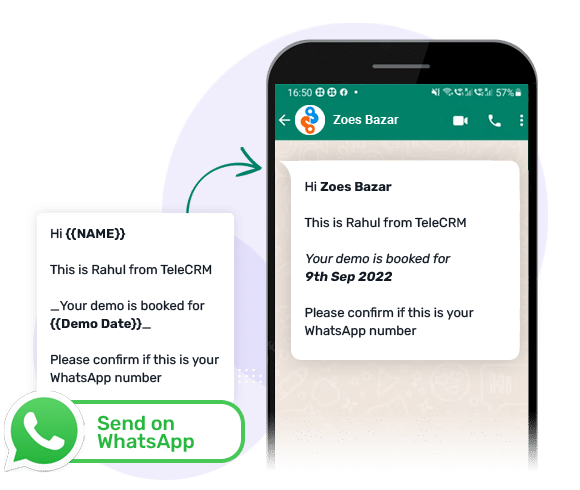
Keeping up with all your customer interactions is a lot even for a large team comprising 100-plus agents. But what if I tell you that you could automate some of those tasks? Your B2C CRM can handle many of your team’s repetitive tasks. Think: sending a quick ‘thank you’ WhatsApp message after a purchase, a sales call elaborating what they have to do next or a gentle reminder when it’s time to reorder a product they love. With automation, you keep your brand in your customers’ minds without overwhelming them — or yourself.
After setting up automation you will rarely lose a deal due to time constraints or a lapse in judgement. Additionally, you also get a chance to enhance the customer experience by wishing someone a happy birthday with a special discount or by sending them a coupon just when they might be looking to buy your product. These automated touches make your customers feel valued and looked after.
Plus, automated workflows free up your time so you can focus on other parts of your business that need your attention. Just set it, forget it and let the CRM do its thing, keeping your communication consistent and your customers happy.
Did you know? The automation feature of Telecrm is very simple and quick to set up. (It takes less time than setting up a social media account!) You’ll be able to run almost all things on automation and save a ton of time, which you can then invest in things that require your attention.
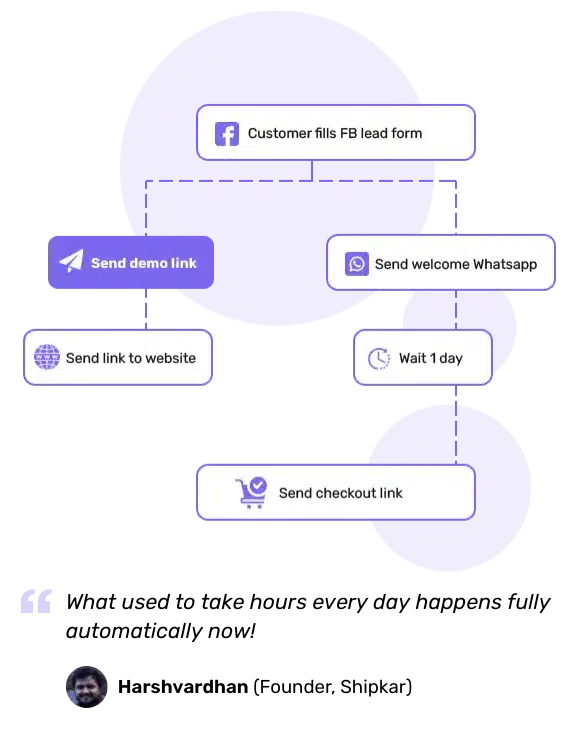
Every time a customer talks to you, purchases something or even just casually browses your website, it’s like they’re giving you a little clue about what they want. Your B2C CRM keeps track of all this information and presents that data in an easily digestible format. By reviewing this information, you can start to see what your customers really like, what they don’t care for and how they prefer to shop.
For instance, if you notice a lot of customers start filling up their carts around payday, that’s a clue. Maybe you could time your promotions or special deals around those dates to boost your sales processes. Or if a customer frequently asks about a specific product feature via chat, why not highlight these features in your upcoming WhatsApp campaigns?
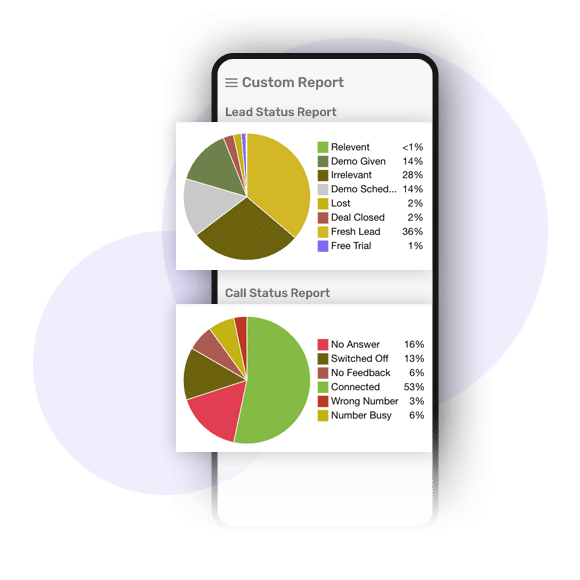
Using a B2C CRM like Telecrm not only helps you monitor these interactions and better understand your customers, but it also makes them feel heard and understood. Telecrm provides detailed reports that offer invaluable insight into your customers’ interactions. This way, they’ll appreciate that you’re paying attention and responding to their needs, not just pushing your wares without considering their preferences.
Your customers interact with your brand in more ways than one. They might see your ads on social media, get WhatsApp messages from you or even talk to your sales reps on the phone. To really make their experience smooth and enjoyable, your B2C CRM must streamline customer interactions across platforms.
For instance, if a customer signs up for a webinar via your website, your CRM will automatically send them a calendar invite, a preparatory welcome message through WhatsApp and even a follow-up message after the webinar with additional resources. Or if someone asks about a product on a call, you can send all the details they need to their email right away. By linking all these interactions together, your CRM ensures that no matter how or where your customers reach out to you, the service they receive is consistent, helpful and personal.
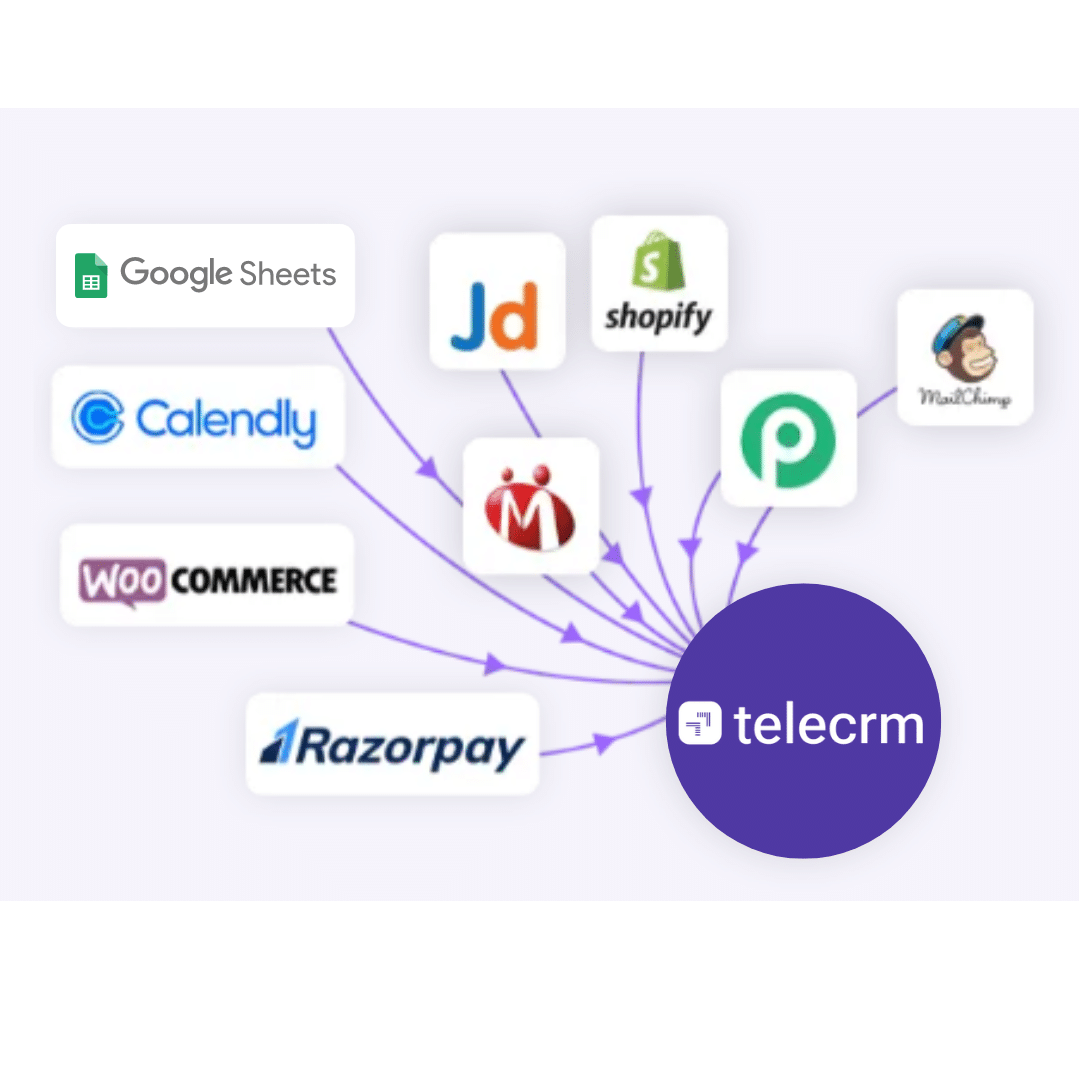
This kind of seamless integration is possible with Telecrm and not only helps with making your customers’ lives easier — it also helps your teams work better. Everyone from marketing to sales to customer service has the same up-to-date information, so they can provide the best service possible without any mix-ups or delays.
Let’s look at the different CRM features for B2C and B2B systems so you can see which one fits your business needs best:
Feature | B2C CRM | B2B CRM |
Sales cycle | Short and frequent transactions | Longer sales cycles with more negotiations |
Customer base | Large volume of customers with less individual value per sale | Smaller customer base with higher value per customer |
Relationship focus | Focus on mass marketing and quick interactions | Focus on building long-term relationships and networks |
Decision making | Individual consumers make quick decisions | Decisions often involve multiple stakeholders and take longer |
Marketing approach | Product-driven, aiming for immediate appeal and impulse buys | Relationship-driven, often tailored to specific business needs |
Customer interaction | High volume of automated, personalised interactions | More personalised, often one-on-one interactions |
Data management | Manages large amounts of data to segment and target effectively | Deals with complex data often related to business processes and ROI calculations |
Understanding these differences is crucial because the right CRM approach can dramatically enhance your customer engagement and sales management. For instance, if you’re operating in a B2C market, using a B2C CRM helps you manage and analyse the vast amount of customer data you collect every day. This allows you to automate and personalise at scale, sending out the right messages at the right time without needing to manually look over every interaction.
On the other hand, if you’re more focused on B2B, the emphasis is on nurturing fewer but more lucrative relationships over time. A B2B CRM solution will support you and your team in managing complex sales pipeline management and maintaining detailed records of interactions and negotiations, which are crucial for making informed business decisions and maintaining strong professional relationships.
You should be choosing the type of CRM that not only fits your business needs but also helps you with streamlining your operations, enhancing your marketing efforts and increasing overall sales efficiency. This helps ensure that the software aligns with your goals and intent so that you don’t have any trouble achieving your goals.
To truly leverage the power of your B2C CRM, here are a few best practices you should consider:
Keep data clean and updated: Regularly clean your CRM data to remove duplicates and outdated information. This ensures that your marketing and sales teams are working with accurate information, which is crucial for effective targeting and personalisation.
Segment your customers effectively: Use the detailed data within your CRM to segment your customers based on their behaviour, purchase history and preferences. This allows for more targeted and relevant marketing campaigns.
Personalise communication: Tailor your interactions based on the customer data you collect. Personalisation can significantly increase customer engagement and loyalty.
Integrate with other tools: Ensure your CRM works seamlessly with other tools like your marketing automation platform and customer service software. This integration helps provide a unified customer experience.
Monitor and adjust: Continuously analyse the performance and CRM metrics to make adjustments based on customer feedback and behaviour. This iterative process helps improve the effectiveness of your CRM over time.
Now’s the perfect time to step up your marketing and customer service game with a B2C CRM. It’s all about understanding your customers better and making each interaction count. The right CRM solution can make your marketing smarter and your customer service smoother.
Here’s the straightforward scoop on why you should get on board:
You get the full picture: B2C CRM turns all that customer data into insights you can actually use. This means you’re not just guessing what your customers want but actually know their demands.
Make every message count: Personalise your chats, emails and ads so each customer feels like you’re speaking directly to them.
Save time with automation: Let the system handle the routine stuff like follow-ups and birthday wishes or season’s greetings, so you can focus on bigger things.
Keep everything in sync: Whether your customer interacts with you on social media or over the phone, it keeps all your customer interactions smooth and consistent.
Book a demo today and see it in action for yourself!
Related Read: What is CRM? Features, Benefits, Best Options and More!


© Copyright 2025 Telecrm.in - All Rights Reserved • Privacy Policy • T&C
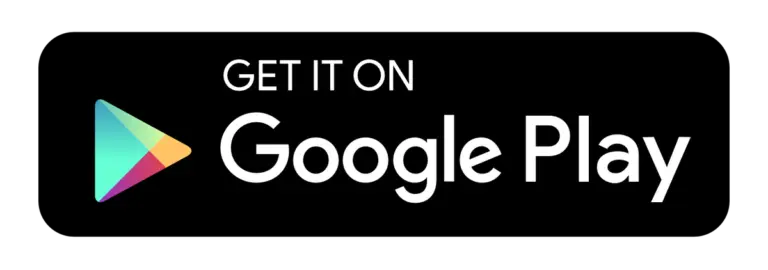

© Copyright 2025 Telecrm.in - All Rights Reserved • Privacy Policy • T&C